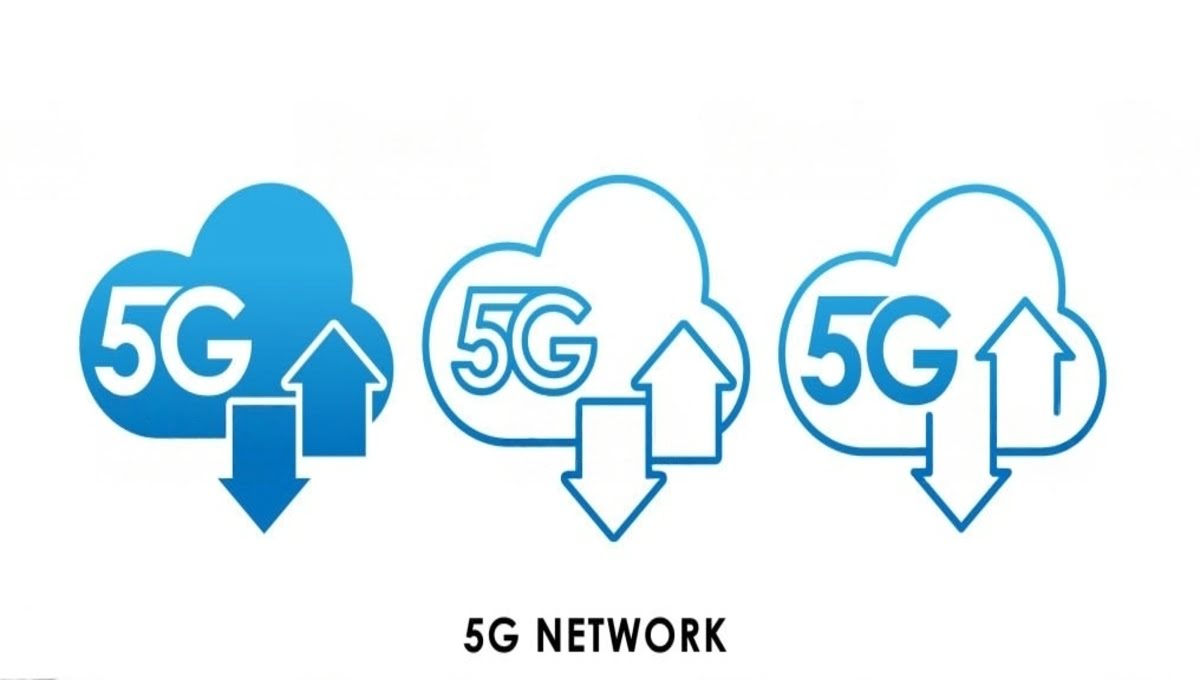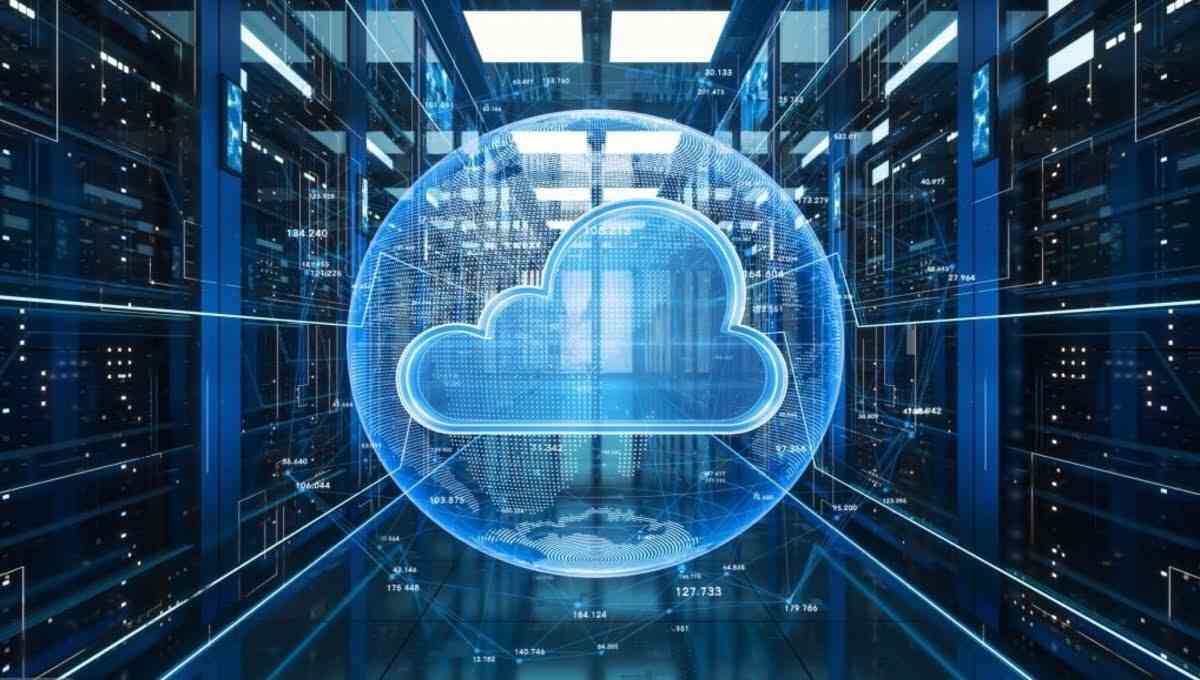CLOUD COMPUTING
5G Cloud Computing: The Future of Computing

In today’s fast-paced digital landscape, the fusion of two cutting-edge technologies, 5G and cloud computing, has emerged as a powerhouse of innovation. The synergy of these two giants has unlocked a realm of possibilities that were once considered futuristic. In this article, we will dive deep into the realm of 5G cloud computing, understanding what it is, its significance, its applications, and how it is revolutionizing various industries.
5G is the fifth generation of cellular network technology, and it promises to deliver much faster speeds, lower latency, and more reliable connections than previous generations. This makes it ideal for a wide range of applications, including cloud computing.
Cloud computing is a model of computing where data and applications are stored and accessed over the internet. This allows businesses and individuals to access the resources they need without having to invest in their own hardware and software.
5G cloud computing combines the power of 5G with the flexibility and scalability of cloud computing. This makes it possible to run even the most demanding applications in the cloud with no performance degradation.
Some of the benefits of 5G cloud computing include:
- Faster speeds: 5G can deliver speeds of up to 100 Gbps, which is much faster than previous generations of cellular networks. This means that data can be transferred and processed much faster, which is essential for many applications, such as real-time video streaming and gaming.
- Lower latency: Latency is the time it takes for data to travel from one point to another. 5G has much lower latency than previous generations of cellular networks, which means that applications can respond more quickly to user input.
- More reliable connections: 5G is more reliable than previous generations of cellular networks, which means that applications are less likely to experience outages or disruptions.
- Greater scalability: Cloud computing is scalable, which means that businesses can easily add or remove resources as needed. This is essential for businesses that experience fluctuating demand, such as e-commerce retailers, during peak shopping seasons.
- Enhanced security: 5G uses a variety of security features to protect data from unauthorized access. This makes it a more secure platform for cloud computing than previous generations of cellular networks.
5G cloud computing is still in its early stages, but it has the potential to revolutionize the way we use cloud computing. With its faster speeds, lower latency, and more reliable connections, 5G cloud computing can support a wide range of applications that were not possible before.
Here are some of the industries that are expected to benefit from 5G cloud computing:
- Manufacturing: 5G cloud computing can be used to automate factories and improve efficiency. For example, robots can be controlled remotely using 5G, and data from sensors can be analyzed in the cloud to improve production processes.
- Retail: 5G cloud computing can be used to improve the customer experience. For example, stores can use 5G to provide real-time inventory updates and personalized recommendations to customers.
- Transportation: 5G cloud computing can be used to improve the safety and efficiency of transportation. For example, self-driving cars can use 5G to communicate with each other and with infrastructure, such as traffic lights.
- Healthcare: 5G cloud computing can be used to improve the delivery of healthcare services. For example, doctors can use 5G to remotely monitor patients, and surgeons can use 5G to control robotic surgical instruments.
- Education: 5G cloud computing can be used to improve the delivery of educational services. For example, students can use 5G to access virtual reality learning experiences, and teachers can use 5G to collaborate with each other and with students.
These are just a few of the many industries that are expected to benefit from 5G cloud computing. As 5G continues to roll out, we can expect to see even more innovative applications of this technology.
Here are some of the challenges of 5G cloud computing:
- Cost: 5G cloud computing is still a relatively new technology, so it can be more expensive than traditional cloud computing. However, as technology matures, costs are expected to come down.
- Security: 5G cloud computing uses a variety of security features, but it is still important to take steps to protect data. Businesses should implement strong security measures, such as encryption and access control, to protect their data in the cloud.
- Complexity: 5G cloud computing is a complex technology, and it can be difficult to manage. Businesses should carefully consider their needs before deploying 5G cloud computing.
How does 5G make cloud computing better?
Here are some specific examples of how 5G is being used to improve cloud computing:
- Virtual reality and augmented reality: 5G can be used to deliver real-time, high-quality virtual reality and augmented reality experiences. This is because 5G has the bandwidth and low latency needed to support these immersive technologies.
- Self-driving cars: 5G can be used to connect self-driving cars to the cloud. This allows the cars to receive real-time updates on traffic conditions, weather, and other factors. It also allows the cars to communicate with each other to avoid collisions.
- Remote surgery: 5G can be used to transmit high-quality video and data between a surgeon and a patient who is located in a different location. This allows the surgeon to perform surgery remotely, which can be beneficial in rural areas where there are not enough surgeons available.
- Industrial automation: 5G can be used to connect industrial machines and devices to the cloud. This allows businesses to monitor and control their operations remotely, which can improve efficiency and productivity.
Challenges Ahead
While the future of 5G cloud computing is promising, there are challenges to overcome, including infrastructure development, regulatory issues, and affordability for widespread adoption.
Conclusion
In conclusion, 5G cloud computing is not just a technological advancement; it’s a revolution. It’s redefining how we connect, communicate, and conduct business. The future is exciting, and it’s happening now.
FAQs
What is the main advantage of 5G cloud computing?
The main advantage is the combination of high-speed data transmission and cloud-based services, enabling real-time, data-intensive applications.
How does 5G cloud computing benefit healthcare?
It allows for telemedicine, remote patient monitoring, and quick access to critical medical data, improving healthcare accessibility and efficiency.
Are there security concerns with 5G cloud computing?
Yes, there are security concerns, but ongoing advancements in cybersecurity are addressing these issues to ensure data protection.
What industries are being transformed by 5G cloud computing?
Industries such as healthcare, automotive, entertainment, and smart cities are experiencing significant transformations.
What’s the outlook for 5G cloud computing in the coming years?
The outlook is highly promising, with continuous innovation and widespread adoption expected across various sectors.

 FUNDAMENTAL2 months ago
FUNDAMENTAL2 months agoHow Cloud Computing Improving Customer Service Processes

 FUNDAMENTAL7 months ago
FUNDAMENTAL7 months agoWhat is cloud computing? A Comprehensive Guide

 FUNDAMENTAL4 months ago
FUNDAMENTAL4 months agoHow can Cloud Technology Help Small Businesses ?

 FUNDAMENTAL7 months ago
FUNDAMENTAL7 months agoEvolution of Cloud Computing : A Well-Explained

 CLOUD COMPUTING2 months ago
CLOUD COMPUTING2 months agoWhat Is VlAN and VSAN In Cloud Computing?

 FUNDAMENTAL2 months ago
FUNDAMENTAL2 months agoIaaS PaaS and SaaS in cloud computing

 FUNDAMENTAL2 months ago
FUNDAMENTAL2 months agoWhich is a fundamental attribute of cloud computing?

 CLOUD COMPUTING2 months ago
CLOUD COMPUTING2 months agoHow to Make Your Own Cloud Storage : A Step-by-Step Guide














